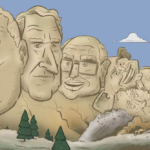Harmony Day Celebrating Diverse Australia
Just how rich a multicultural society we are is borne out by official statistics: more than half of all Australians in the 2006 Census claimed non-Australian ancestry. Collectively, we speak more than 200 languages and come from about the same number of birthplaces.
Harmony Day, 21 March 2010 , was a day when people all over the country acknowledged the enormously valuable contribution of the many diverse cultures to the nation that is Australia today. Harmony Day coincides with the International Day for the Elimination of Racial Discrimination.
According to the last census, 24 per cent of the Australia population was born overseas, 40 per cent have one or both parents born overseas and over 60 per cent have at least two different ethnic origins. More than two million Australians (or about 14 per cent of those aged over five) speak a language other than English at home.
Australia is a welcoming, multicultural nation, an immigrant society that is the product of a conscious and concerted policy of encouraging and supporting the arrival of migrants. Australia is one of the few countries with a co-ordinated refugee intake and settlement program.
Both Coalition and Labor governments have supported the Diverse Australia program as a way to promote respect for other cultures and tackle cultural, racial and religious intolerance.
Yet racism, bullying and violence persist.
Most people were profoundly shocked by the shameful attacks that were exposed for all Australia and the rest of the world to see during the 2006 Cronulla riots, yet racial abuse continues to be a problem.
The recent well publicized attacks on Indian students are really the tip of a very big iceberg that will not go away unless we do something to reverse innate prejudice against people whose appearance or habits are “different”.
One way to counter such negative attitudes is to teach kids from a very early age that racial abuse and discrimination have no place in a pluralistic and tolerant society. Just as it is perfectly possible to teach even tiny children the difference between right and wrong, it is just as reasonable to teach them respect for people who look different, eat different food and practise rituals we might not be familiar with. Let’s face it, pre-schoolers have no qualms about who they hang out with: they will happily play together irrespective of skin colour, clothing or language.
So why, if kids are exposed to other cultures from a very early age, does racism still rear its ugly head? Quite simply, because as kids grow older they adopt the prejudices and negative attitudes of the adults around them.
At Red Cross, we have an amazing cultural mix of volunteers helping serve breakfast to school students, working with kids and adults in remote communities, taking refugees on familiarisation trips, helping translate for asylum seekers and mentoring homeless teenagers.
Many of these dedicated volunteers know what it’s like to be on the receiving end of racial abuse and have their own heartbreaking stories to tell about persecution in their birth country. Sadly, some of them find their new countrymen and women less than welcoming.
Imagine being a skilled professional forced to flee your homeland because you face the real prospect of being killed or tortured and arriving in Australia to seek a better life, only to discover that employers discriminate against you because of your appearance. One highly educated man found it difficult to find work because he “looked like a stereotypical terrorist”, even though he abhors violence.
One child of Middle Eastern background at a school in far west NSW had to put up with taunts and ridicule. With the help of a Red Cross program called Y Challenge, the other students were encouraged to dig beneath the surface – and discovered a kid who was just like them – now those kids are helping others who find themselves in the same boat.
A young woman from Sudan who spent years in refugee camps says she cried and cried at first because she felt so isolated and lonely. However, like many others she went on to become a Red Cross volunteer as a way of “giving back” to her adopted country.
Surely, after all that they have been through, it’s not too much to ask that they be treated with respect.
There is still a lot of work for us to do to counter prejudice and intolerance. But we can make a lot of progress by making sure our children learn to celebrate difference and value the rich contribution of migrants to our cultural diversity.
That way, our efforts will not be in vain.
Shaun Hazeldine is Manager of Youth and Education Services for Australian Red Cross NSW. The picture is of Harmony Day dolls made by kids at Moss Vale Public School NSW. The students made 500 dolls that are destined for Red Cross migration support programs; specifically for migrant, refugee and asylum seeker clients with young children.













